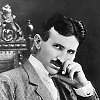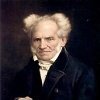S. I. Hayakawa Quotes
21 Sourced Quotes
Mr. Mets is representative not only of the general public, but also of many scientific workers, publicists, and writers. Like most people, he takes words as much for granted as the air he breathes, gives them about as much thought. [...] But Mr. Mets, like the rest of us, also adjusts himself automatically to changes in the verbal climate, from one type of discourse to another, from one set terms to another, from the listening habits of one kind of social occasion to those of another kind of social occasion, without conscious effort. He has yet, however, to acknowledge the effect of his verbal climate on his mental health and well-being.S. I. Hayakawa
A human being, then, is never dependent on his own experience alone for his information. Even in a primitive culture he can make use of the experience of his neighbors, friends, and relatives, which they communicate to him by means of language. Therefore, instead of remaining helpless because of the limitations of his own experience and knowledge, instead of having to discover what others have already discovered, instead of explporing the false traits they explored and repeating their errors, he can go on from where they left off. Language, that is to say, makes progress possible.S. I. Hayakawa
From the moment he switches on an early-morning news broadcast until he falls asleep at night over a novel or a magazine, he is, like all other people living in modern civilized conditions, swimming in words. Newspaper editors, politicians, salesmen, disc jockeys, columnists, luncheon club speakers, and clergymen; colleagues at work, friends, relatives, wife and children; market reports, direct-mail advertising, books, and billboards — all are assailing him with words all day long.S. I. Hayakawa
Indeed, most of the time when we are listening to the noises people make or looking at the black marks on paper that stand for such noises, we are drawing upon the experiences of others in order to make up for what we ourselves have missed. Obviously the more an individual can make use of the nervous systems of others to supplement his own, the easier it is for him to survive. And, of course, the more individuals there are in a group cooperating by making helpful noises at each other, the better it is for all — within the limits, naturally, of the group's talents for social organization. [...] Societies, both animal and human, might almost be regarded as huge cooperative nervous system.S. I. Hayakawa
All fashionable clothes, as Thorstein Veblen has pointed out in his Theory of the Leisure Class (1899), are highly symbolic: materials, cut, and ornament are dictated only to a slight degree by consideration of warmth, comfort, or practicability. The more we dress up in fine clothes, the more we restrict our freedom of action. But by means of delicate embroideries, easily soiled fabrics, starched shirts, high heels, long and pointed fingernails. and other such sacrifices of comfort, the wealthy classes manage to symbolize, among other things, the fact that they don't have to work for a living.S. I. Hayakawa
There is [...] no necessary connection between the symbol and that which is symbolized. Just as men can wear yachting costumes without ever having been near a yacht, so they can make the noise "I'm hungry" without being hungry. Furthermore, just as social rank can be symbolized by feathers in the hair, by tattooing on the breast, by gold ornaments on the watch chain, or by a thousand different devices according to the culture we live in, so the fact of being hungry can be symbolized by a thousand different noises according to the culture we live in: "J'ai faim," or "Es hungert mich," or "Ho appetito," or "Hara ga hetta," and so on.S. I. Hayakawa





















